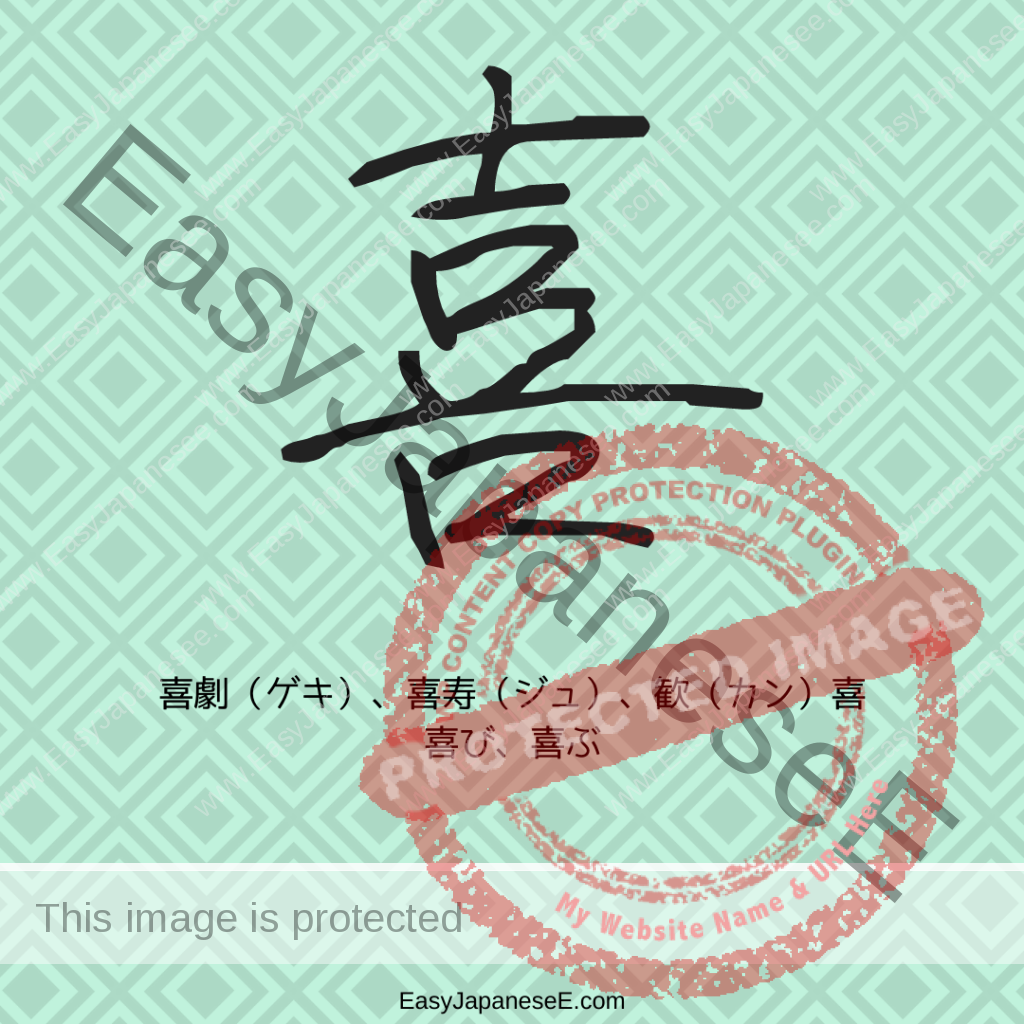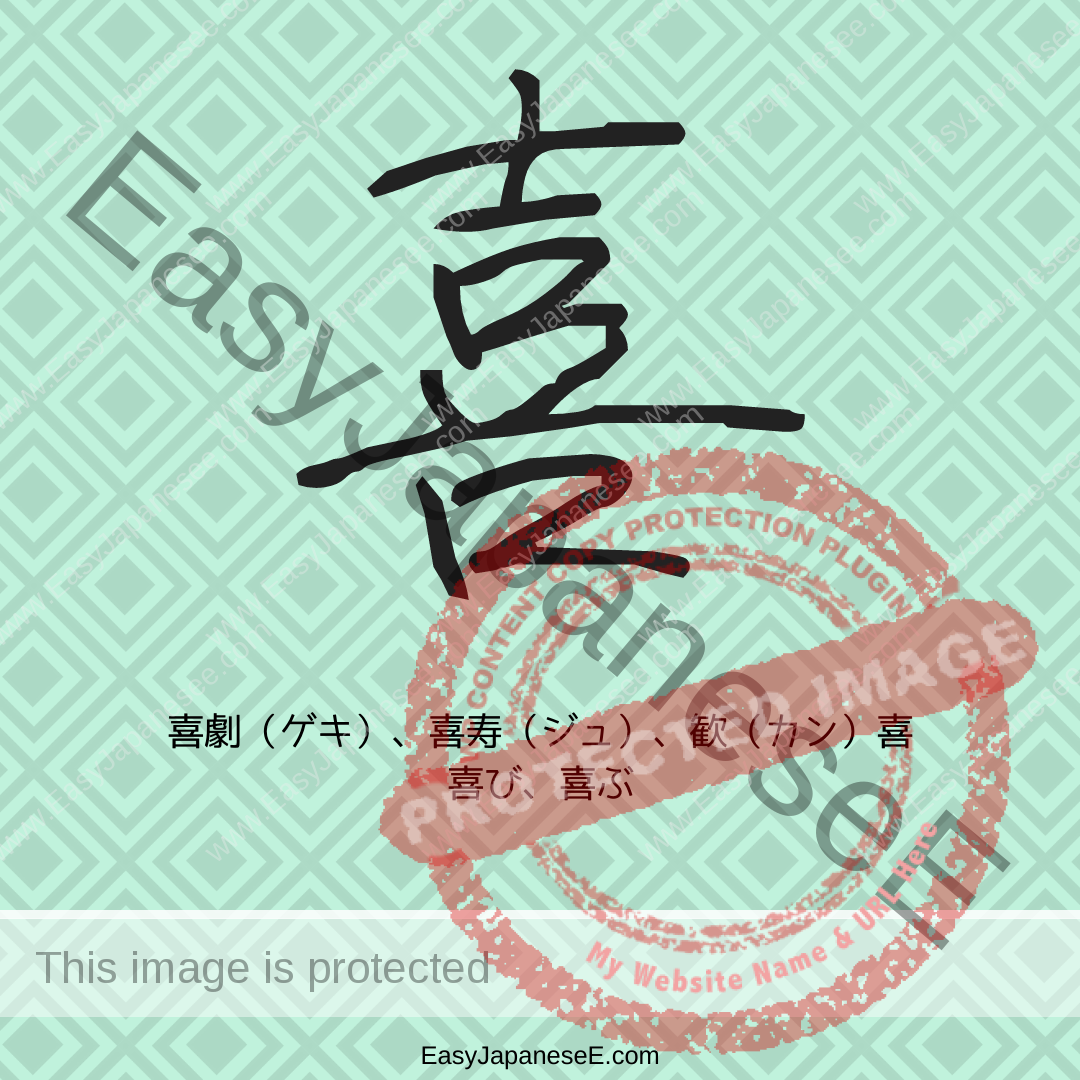This week’s #Kanji is #喜, which is listed its semantic element of #口. Its phonetic element is 壴, but 壴 is no longer used in Japanese and it does not share a sound with 喜.

meaning: to rejoice, to be pleased, to celebrate
reading: キ、よろこ
喜劇(キゲキ): a comedy
喜寿(キジュ): a person’s 77th birthday. 喜 can be written as 㐂 which looks like 七十七.
歓喜(カンキ): (great) joy, delight, gladness, ecstasy
喜(よろこ)び: joy, delight, pleasure (When よろこび means celebration, it is usually written as 慶び.)
喜(よろこ)ぶ: to be glad, to rejoice, to be delighted (the non-past verb よろこぶ is about the moment of getting delighted. If you want to describe a psychological state of being glad, it is usually expressed in the よろこんでいる format.)
~して喜ぶ: to be please in ~ing, to amuse oneself by ~ing
両親はその知らせを聞いて喜んだ。
りょうしんは その しらせを きいて よろこんだ。
My parents were pleased to hear the news. (very objective)
喜んで~する: would gladly do ~, be pleased to do ~
喜んでお手伝いします。
よろこんで おてつだい します。
I’m happy to help.

